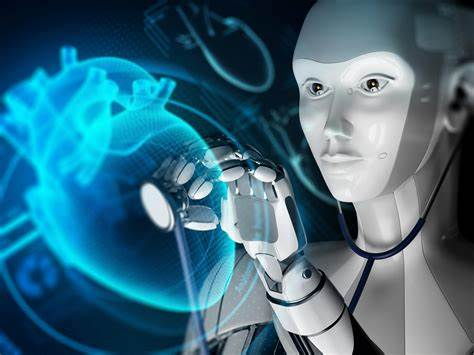In healthcare, accurate diagnosis is paramount for effective treatment and patient outcomes. Yet, diagnosing complex conditions demands specialized expertise and access to vast patient data, presenting challenges for healthcare providers. Artificial intelligence (AI) has emerged as a transformative solution, reshaping medical diagnosis. This article explores AI’s impact on medical diagnosis, highlighting its features, benefits, and applications.
Feature:
AI in medical diagnosis utilizes machine learning algorithms and medical imaging techniques to analyze patient data. It processes extensive medical records, diagnostic images, and genetic information to assist healthcare providers in making accurate and timely diagnoses. AI incorporates predictive analytics and decision support systems to prioritize patient care and treatment strategies.

Benefits:
1. Accurate and Timely Diagnosis:
AI in medical diagnosis harnesses machine learning algorithms to analyze patient data, aiding healthcare providers in making accurate diagnoses. By processing vast medical information, including records and images, AI enhances diagnostic accuracy and efficiency. Whether detecting tumors or predicting disease progression, AI provides valuable insights for better patient outcomes.
2. Personalized Treatment Planning:
AI supports personalized treatment planning by analyzing patient data and clinical outcomes. It identifies optimal treatment strategies tailored to individual patient needs, maximizing efficacy while minimizing risks. Additionally, AI enables real-time treatment monitoring and adjustment, ensuring patients receive the most effective care.
3. Enhanced Healthcare Access and Efficiency:
AI expands healthcare access and efficiency by facilitating remote consultations and streamlining diagnostic workflows. Telemedicine platforms powered by AI enable patients to receive timely evaluations, reducing barriers to care. AI-driven diagnostic tools optimize resource allocation, leading to shorter wait times and improved healthcare delivery.
4. Advancements in Medical Research:
AI accelerates medical research by analyzing large-scale datasets to identify novel biomarkers and therapeutic targets. This collaborative approach fosters innovation, driving the discovery of new treatments and cures. AI’s integration into medical practice holds promise for improving patient care and transforming healthcare.
In conclusion, AI in medical diagnosis represents a significant advancement in healthcare. By enhancing diagnostic accuracy, enabling personalized treatment, and driving medical research, AI empowers healthcare providers to deliver quality care and improve patient outcomes. As AI continues to evolve, its role in medical diagnosis will continue to grow, shaping the future of healthcare delivery.





